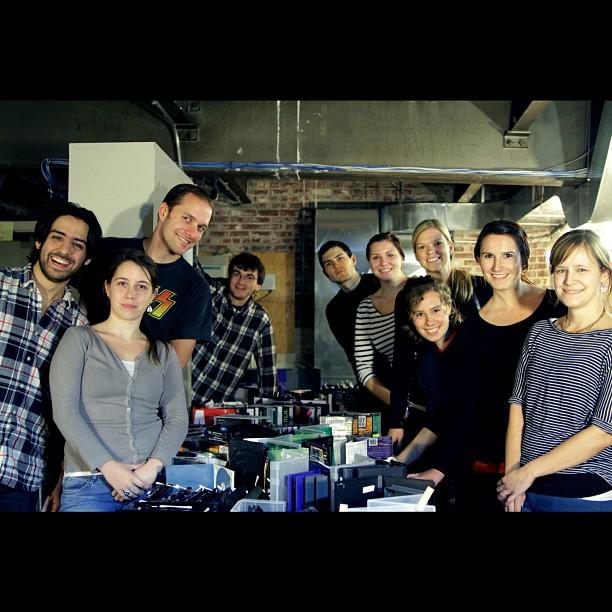Is It Wrong To Focus On Saving Mere Things After A Disaster?
November 5, 2012
One of the great conflicts I have with the choice of my career is the primary focus on material objects, on plastic things. Sure, those things hold important cultural content, but int he end they (generally) are not a matter of life or death. They are not people who are suffering, who could use the resources and care we give to these piles of…stuff.
One makes one’s choices in life, and, realistically, most work is not immediately critical to survival. But this issue I have is brought into sharp relief at times like these as we recover from Hurricane Sandy. I’m very proud of the work we at AVPS and all the other volunteers have done at Eyebeam Art & Technology Center and with other media collections to help salvage their materials. (See our Facebook page for photos and documentation of the effort.) The mobilization effort is so impressive, and seeing our colleagues in the field use their expertise and passion to save a collections before it is completely (and quickly) lost is just, wow.

But at the same time, one wonders (or maybe just I do), what if we had funneled just a fragment of that effort into taking food and equipment to people in the hard hit areas like the Rockaways and Staten Island, or into volunteering at medical shelters to care for the sick and elderly, or going into houses to help clean up and rebuild? What are mounds of DVDs and reels of magnetic tape compared to the life of a stranded shut in who needs warm clothes and a hot meal, or someone who has lost their home?
***************************
In a less drastic scenario, this kind of question parallels the issue of general funding for the arts, libraries and archives, and preservation. However in that arena I have no problem adamantly averring that yes, these institutions and efforts need more resources and money because they matter. Arts and Humanistic learning bring texture and richness to our lives. They connect us to others, in the present, past, and (if we’re lucky) the future. We understand the things that make life physically possible to live — food, water, shelter, clothing — but what is that capability without the things that make life worth living — family, community, belief (in something or nothing), pleasurable food and drink, entertainment, and art.
And in the aftermath of tragedy — the brunt of which many of us were lucky enough to escape relatively unscathed — it is also important to recall the importance of quality of life, as well as to understand our roles and abilities to contribute as part of a functioning, livable society. We do what we can and we help in the ways that other people cannot help themselves.
In this way the kind of work done at Eyebeam is not about material stuff. It’s about community, about reaching out to someone to say what you do or what you care about matters to others. It makes our lives better. We want to help maintain that fact and share it with others, and we want to thank you.